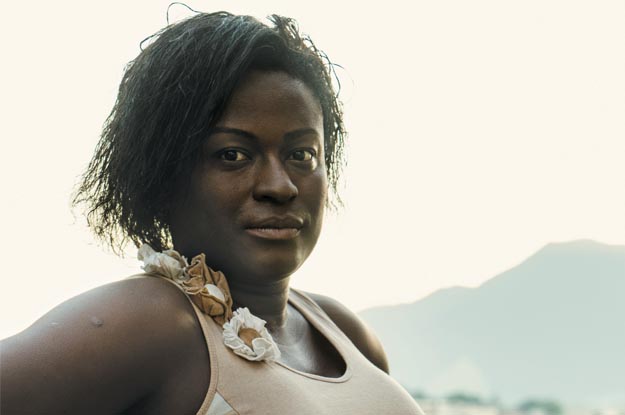“We don’t accept your kind here.” For years, Alessandra Ramos, 33, heard variations of that devastating message wherever she went, whether it was delivered explicitly or subtly. After applying for one job and passing through several stages in the selection process,
Ramos recalls, “They didn’t hire me […] because I revealed I was trans.”
Ramos’ professional qualifications are impressive. Born in Brasília and raised in Rio de Janeiro, where she now resides, she taught herself English, French, Italian, and Spanish, and has become a well-known interpreter of Brazilian sign language. Raised as a Jehovah’s Witness, Ramos learned sign language through the church, but subsequently abandoned religion at around age 21, when she began the process of transitioning gender. For six months, Ramos worked as a prostitute on the streets of both Rio and Paris.
“In my day, it was not common to be transgender and to be out in society like a normal person,” Ramos explains. “I suffered a lot when I started transitioning because I thought I had no other options, and that [prostitution] was what I did.”
The desire to show transgender people that they can do anything contributed to Ramos’ activism. She is a member of Transrevolução, a Rio-based group that fights discrimination and promotes discussions of lesbian, gay and transgender issues. “At first, Transrevolução’s focus was strengthening employment opportunities, but now we’ve begun to be involved in nationwide issues,” she says. One issue that has been personal for Ramos is the right to have her legal name changed on her personal documents—a right recognized by some Brazilian states since 20091—although, after two and half years, Ramos is still waiting for a judge to make a decision about her petition.
Ramos says that being both black and trans often means facing discrimination on two fronts—with the added risk of extreme violence. Although Brazil has only recently begun to collect data on hate crimes against the LGBT community, one study, the President’s Human Rights Secretariat report on homophobic violence, revealed a 166 percent increase in reported human rights violations against lesbian, gay, bisexual, and transgender Brazilians between 2011 and 2012.2 A 2013 report by the international human rights organization Global Rights found that the majority of victims of such crimes are Afro-descendant, transgender women.
Addressing violence is complicated by what Ramos describes as the “extreme invisibility” of black trans people. In May, Ramos helped organize the first National Black Trans Forum in Porto Alegre. The forum included a public presentation of Global Rights’ report on the rights of Afro-Brazilian transgender women, which Ramos translated into Portuguese and which had never before been published in Brazil.
Ramos refuses to accept invisibility any longer. In January, she appeared on the country’s largest network, TV Globo, where she told her story for the first time to a nationwide audience. “I believe that the real winner when I appeared [on TV] was Brazilian society,” she says. “[The program provided] a better understanding of trans issues in a way that didn’t involve stereotypes.”
Ramos’ advocacy also caught the attention of Federal Deputy Jean Wyllys, who recently invited her to work with him as a consultant. Wyllys is an author of a pending bill before the Brazilian congress that would establish legal rights for transgender Brazilians.4 Among its provisions is a requirement that public and private health plans pay for hormone treatment and sex change surgery for anyone over 18 who requests it—without having to provide evidence of a diagnosis, medical treatment or authorization from a judge.
Ramos’ public profile has given her the confidence to pursue her private ambitions. While translation remains her main source of income, she is now studying at the Instituto Federal de Educação, Ciência e Tecnologia (Federal Institute of Education, Science and Technology) in Rio de Janeiro to become a cultural producer and event organizer. “[It] gives me so much pleasure to know it’s possible for a trans person to survive in the real world and be successful,” she says.




